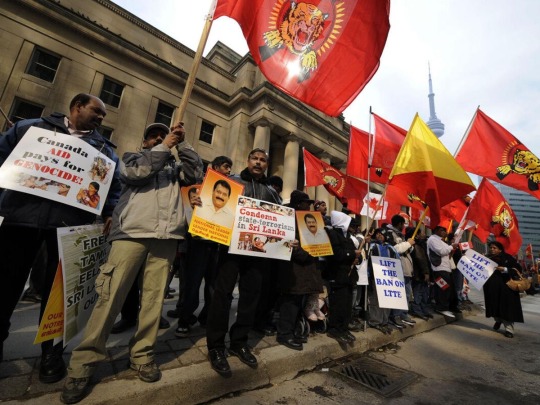Don't wanna be here? Send us removal request.
Text
Navigating the Political Landscape: Understanding the Dynamics of Coalition Governments
A coalition government, formed when multiple political parties join forces to create a working majority, is a common phenomenon in many democracies around the world. This type of government introduces a unique set of challenges and opportunities, shaping the course of policy-making, governance, and the overall political landscape. In this article, we delve into the intricacies of coalition governments, exploring their formation, benefits, challenges, and impact on democratic governance.
Formation of Coalition Governments:
Coalition governments typically arise when no single political party secures an absolute majority in an election. Parties must negotiate and form alliances to achieve a combined majority, allowing them to form a stable government. Such alliances are often based on shared policy goals, ideologies, or the need to prevent a specific party from taking power.
Benefits of Coalition Governments:
1. Representation and Inclusivity:
Coalition governments tend to represent a broader range of viewpoints and interests since they involve multiple parties. This inclusivity can lead to more comprehensive policy-making that addresses diverse concerns.
2. Checks and Balances
In a coalition, parties are likely to hold each other accountable, acting as checks and balances on one another. This can prevent the concentration of power and encourage more thoughtful decision-making.
3. Compromise and Stability:
Coalition governments often require parties to compromise and find common ground. While this can slow down decision-making, it can also lead to more stable policies that are less likely to be overturned by changing governments.
4. Preventing Extremism:
Coalition governments can prevent the rise of extreme ideologies by fostering collaboration between moderate parties and limiting the influence of fringe groups.
Challenges of Coalition Governments:
1. Policy Compromises:
While compromise can lead to stable policies, it can also dilute the implementation of bold reforms, as parties need to find middle ground that satisfies all coalition members.
2. Instability and Dissension:
Coalition governments can be prone to internal conflicts and disagreements, especially when parties have differing policy priorities or personal ambitions.
3. Accountability Diffusion:
Blurring lines of responsibility can make it difficult for citizens to attribute policy outcomes to specific parties, reducing the clarity of accountability.
4. Slow Decision-Making:
Negotiations among coalition partners can slow down the decision-making process, potentially hindering the government's ability to respond swiftly to urgent issues.
Impact on Democratic Governance:
Coalition governments have a significant impact on democratic governance. They highlight the importance of negotiation, compromise, and consensus-building in a diverse political landscape. They also emphasize the role of the electorate in shaping the composition of government through voting patterns.
Conclusion:
Coalition governments offer a pragmatic approach to political governance, bringing together diverse parties to collaborate on policy-making and governance. While they come with benefits and challenges, they reflect the complexities of democratic representation and the need to find common ground in pursuit of national progress. As citizens and leaders navigate the landscape of coalition politics, they contribute to the evolving tapestry of democratic governance around the world.
0 notes
Text

National Strike: Advantage and Disadvantage
National strikes can have significant impacts, both positive and negative. Here are some advantages and disadvantages of a national strike:
**Advantages:**
1. **Drawing Attention:** A national strike can draw widespread attention to the issues at hand, raising awareness among the public, government, and employers. It can create a platform for dialogue and negotiation.
2. **Collective Bargaining Power:** Workers collectively withdrawing their labor can give them stronger bargaining power, leading to better terms and conditions of employment, including improved wages, benefits, and workplace safety measures.
3. **Solidarity and Unity:** A national strike demonstrates solidarity among workers and can unify different sectors, industries, and labor unions, creating a powerful force that demands change.
4. **Pressuring for Change:** Strikes can pressure employers and government authorities to address the grievances and demands of workers, leading to policy reforms, improved labor laws, and better working conditions.
5. **Symbolic Impact:** A large-scale strike can send a symbolic message about workers' rights, social justice, and the importance of fair labor practices. It can inspire other workers to join the movement.
**Disadvantages:**
1. **Economic Impact:** Strikes can disrupt economic activities, causing financial losses to businesses, workers, and the broader economy. This can lead to job cuts, reduced investments, and economic instability.
2. **Loss of Income:** Workers participating in a strike may lose wages during the period of the strike, which can cause financial strain on individuals and families.
3. **Conflict and Polarization:** Strikes can lead to conflicts between workers, employers, and even the general public. Polarization and negative perceptions can arise, impacting relationships and making resolution difficult.
4. **Legal and Social Consequences:** Depending on local laws and regulations, strikes might be considered illegal or may lead to legal actions against unions and organizers. Workers participating in strikes might also face social backlash.
5. **Disruption to Services:** Strikes in essential sectors such as healthcare, transportation, or public services can negatively affect the well-being of citizens, leading to inconvenience and potential health risks.
6. **Negotiation Stalemates:** In some cases, strikes can lead to prolonged negotiation stalemates, where neither side is willing to compromise. This can delay the resolution of issues and prolong the negative effects of the strike.
7. **Resource Drain on Unions:** Organizing and sustaining a national strike requires significant resources, which could strain the financial capacities of labor unions, affecting their ability to support workers' needs.
In conclusion, national strikes can be a potent tool for workers to advocate for their rights and bring attention to important issues. However, they come with inherent risks and consequences that need to be carefully considered. Effective communication, responsible leadership, and a clear strategy are crucial for balancing the potential advantages and disadvantages of a national strike.
0 notes
Text

Diaspora in Politics: Navigating the Shadow of Greed
The influence of diaspora communities on politics is a complex and multifaceted topic that goes beyond just cultural ties and shared heritage. While many diaspora groups aspire to play a positive role in the political landscape of their home countries, the element of greed can sometimes cast a shadow over these aspirations. In this article, we delve into the interplay between diaspora engagement in politics and the potential pitfalls of greed, examining how these dynamics can impact both nations and their global citizens.
The Diaspora's Role in Politics:
Diaspora communities have historically served as bridges between their home countries and adopted lands. They often seek to contribute to their homeland's development, promote cultural exchange, and advocate for the rights of their compatriots. From financial contributions to knowledge sharing, the diaspora's involvement in politics can bring about positive change and innovation.
The Dark Side of Greed:
Greed, however, can infiltrate the noble intentions of diaspora involvement. When political agendas are driven solely by self-interest and financial gain, the original purpose of representing the interests of the homeland can be compromised. This could result in exploitation of resources, manipulation of policies, and even erosion of democratic values.
Influence Peddling and Corruption:
Greed can manifest as an eagerness to use political power to benefit personal or corporate interests. Diaspora members who accumulate wealth abroad might attempt to wield their influence back home, often leading to corruption, unequal distribution of resources, and a disregard for the needs of the broader population. This not only damages the credibility of diaspora-led initiatives but also hinders the progress of the nation.
Economic Exploitation:
The desire for financial gain can sometimes drive diaspora members to engage in economic activities that exploit their home country's resources. This can lead to a loss of control over vital assets, environmental degradation, and a skewed distribution of wealth. Such actions, fueled by greed, can perpetuate a cycle of economic dependency rather than fostering sustainable development.
Undermining Unity:
Greed-fueled political involvement can also exacerbate existing divisions within diaspora communities. Differing financial interests and priorities may lead to disunity, hampering collective efforts to effect positive change. Additionally, it can strain relations between the diaspora and those living in the homeland, as locals may perceive diaspora involvement as self-serving rather than altruistic.
While diaspora engagement in politics has the potential to be a force for good, the influence of greed cannot be underestimated. The delicate balance between advancing the interests of the homeland and succumbing to self-serving agendas requires careful consideration. By recognizing and addressing the corrosive effects of greed, diaspora communities can harness their collective power to drive positive political change that benefits all, rather than a select few.
0 notes